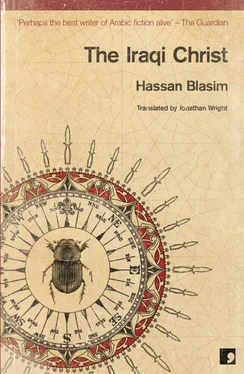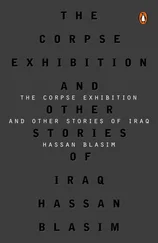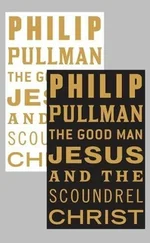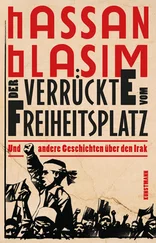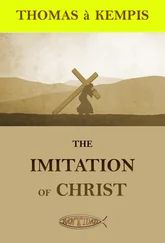Doctor, I’m sure you haven’t heard the story of the poisoned fish. Do you think I’m some madman talking to you about poisons for no reason? In the beginning of the siege years, in 1991, the story of the father and the fish spread across the country. He had bought a large fish, with some vegetables and some pickles. He grilled the fish himself and prepared the salads. Then he ate with his six daughters with tearful eyes and a troubled heart. Of course his daughters didn’t know that he had poisoned the fish. The man couldn’t see any other way to prevent his daughters from turning to prostitution. He sold plastic bags in the market and what he earned wasn’t enough to live on. He died in the certainty that his wife, who was buried in the Najaf cemetery, would understand. Many people didn’t want to call that a crime. But I was thinking about daydreams — the dreams of the man’s daughters as they ate their father’s delicious fish. I don’t know if other people have daydreams when they eat in silence. I know there’s no fixed time for such reveries. That’s what makes them different from ordinary dreams, which are part of a system, though not a democratic one. It’s one of the distinctions of the Daydream Republic. The story of the man was a warning that alarmed people in the early years of the siege. The fish tail on which flies gathered in the rubbish bin wasn’t poisoned. A fat cat took it and fed it to her kittens on the roof of the man’s house. How I wish there could really be such a cat. Any tragedy that isn’t permeated with details invented in an exaggerated and lachrymose way doesn’t deserve to appear in the great tragic theatre. Now do you understand what I mean, doctor? The fish tail is another comma. There’s a bony comma in my head that prevents me from sleeping. You’re right. It’s your turn to talk now, doctor. At the time, people didn’t talk about the kind of poison in the fish. Instead they talked at length about hunger and the honour of their daughters.
Doctor, you want to say that the world can be as white as your shirt. Okay, doctor. And that man is a comma between the words ‘birth’ and ‘death’. But on the honour of your humanitarian profession, doctor, promise to tell me what this empty blank sentence means, and whether the comma is actually necessary.
Doctor, another comma please. Let me go to the bathroom. When I come back, doctor, I’ll tell you about another comma called loneliness. But now let me empty my bowels. I feel as if I’ve drunk a barrel of mud.
Doctor, did you know there are types of mice that start gnawing their tails whenever they get hungry? And the most important mouse I know, which has helped me predict my destiny, is Kafka’s mouse. Have you read it in Finnish, doctor? How can I translate it for you? It’s one of Kafka’s short poisons and its title is ‘A Short Story’:
‘The mouse said, ‘Alas, the world gets smaller every day. It used to be so big that I was frightened. I would run and run and I was pleased when I finally saw the walls appear on the horizon in every direction, but these long walls run fast to meet each other, and here I am at the end of the room and in front of me I can see a trap that I must run into.’
‘You only have to change direction,’ said the cat, and tore the mouse up.
Thank you, doctor.
Now, doctor, please get me out of this dung ball. Please.
A Thousand and One Knives
1
At noon Jaafar the referee was waiting at the end of the lane, his army binoculars round his neck and a football in his lap. The boys arrived one after another and surrounded him, joking with him and talking excitedly about the striker in the Sector 32 team. Jaafar reassured them. ‘We have Allawi al-Saba. He’s the Messi of Sector 29,’ he said.
The boys took turns pushing Jaafar’s wheelchair. One of them said, ‘The Sector 32 team might bring a referee of their own.’
Jaafar wasn’t bothered. He told them he knew how to handle that. They reached the field, Jaafar threw the ball and the boys ran after it.
Jaafar was forty-five years old but he was still young at heart. With his passion for sport, his dynamism and his determination, he amazed his friends and his few enemies. He had been the most famous snooker player in Sector 29 and when he was an army deserter the military police couldn’t catch him. He was like a fox, but his addiction to snooker halls was his downfall. One evening the military police surrounded him at the Khorasan snooker hall in Karada, where he used to take on the most famous players in the area. They sent him off to the Kuwait War and when he came back both his legs had been amputated. Jaafar was a good lad, one of the boys — that’s how the people of the sector saw him. But some of them found fault with his passion for football and the way he hung out with the local youth at his age. Jaafar didn’t take much notice of such talk, because the young had to learn the basics of the game. He would organise matches for them and act as referee. He would remind his critics of the famous national squad player who came from Sector 29 and who he claimed to have trained, adding each time: ‘A miracle that will save the whole country will be my doing, too!’
On the edge of the football field there was a large rubbish skip that gave off white smoke with a putrid stench that drifted over the pitch. Women, some in abayas and some without, came out of the houses around the field with bags of rubbish. Jaafar watched them through his binoculars while the boys ran after the ball, shouting. With his binoculars Jaafar also watched the boys playing. The Sector 32 team arrived accompanied by a young man with a beard and he and Jaafar agreed that Jaafar would referee the first half and the other man the second half. The match began. Jaafar pushed his wheelchair up and down the pitch at high speed in a frenzied passion. He shouted at the boys, either to encourage them or reprimand them, and when they were too far off he would follow them with his binoculars. ‘Goooooooooaaaaaal,’ shouted Jaafar. The Sector 32 referee objected that Jaafar was supporting his own team and wasn’t impartial. Jaafar ignored his objections. He worried about his players as if they were his own children, and when they fell down he would check their knees and legs for any damage. Sometimes his mind would wander and for a few moments he would see them as ghosts in battle and recall the boom of artillery on the front. But then he would go back to the match and blow his whistle to award a penalty kick, as cheerful and enthusiastic as ever. He dripped with sweat as he pushed the wheelchair around with all his strength to keep up with the boys running after the ball like antelopes.
Jaafar blew the whistle. ‘Foul!’
‘I swear it wasn’t a foul, Jaafar,’ objected one of the boys.
‘I tell you it’s a foul. Don’t argue, you idiot.’
‘But Jaafar, you were far away.’
‘What are these then? Do you think I’m blind?’ said Jaafar, holding up his binoculars.
The match ended in a 2–2 draw and the boys pushed Jaafar’s wheelchair to the coffee shop. He said goodbye to them and advised them to prepare for next week’s match with the Sector 52 team.
Jaafar played dominoes in the Shaab coffee shop and gave the others his analysis of the quality of the various Spanish clubs. His laugh echoed through the cafe and shook the big picture of the imam Ali hanging on the wall. The coffee shop owner said the Americans were going to search the sector that night looking for weapons.
‘What does that bunch of cowboys want? It’s because of them I lost my legs in the Kuwait War. What do they want next? Fuck them. One day America’s going to go to shit,’ Jaafar said indignantly, then changed the subject back to football. He and the Real Madrid supporters started arguing and joking. Jaafar was an avid supporter of Barcelona and sometimes Liverpool.
Читать дальше
